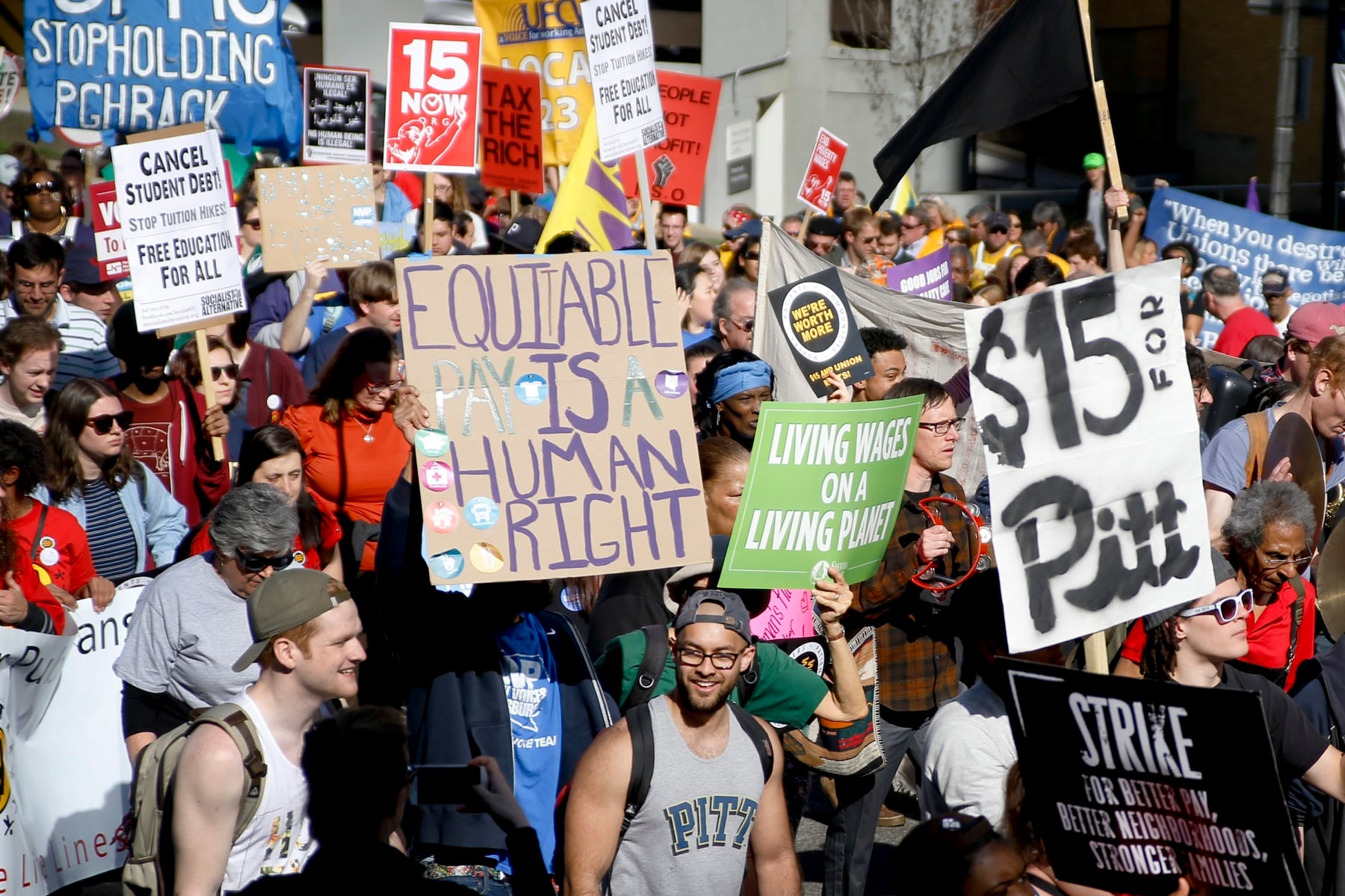Georgia’s Minimum Wage Is Still $5.15. That’s Not Unusual In The South.

During a 2016 protest, union organizers, students and supporters for a $15-an-hour wage march in Pennsylvania. Many U.S. workers started 2019 with a raise. The minimum wage went up in 20 states — but not in Georgia.
Keith Srakocic / Associated Press file
This story was produced in collaboration with the Ravitch Fiscal Reporting Program at the Newmark School of Journalism at the City University of New York.
Around the country, many workers started the year off with a raise. The minimum wage went up in a total of 20 states.
But not in Georgia.
When it comes to the minimum wage, Georgia is one of several Southern states that has stuck to a different approach.
The Southern Strategy
Georgia’s minimum wage can raise eyebrows among workers’ advocates.
“I’ve talked to people over the years that have asked me about why is Georgia still at $5.15,” said Tsedeye Gebreselassie with the National Employment Law Project.
The minimum pay in Georgia has remained $5.15 an hour in state law for more than 15 years.
The wage doesn’t affect most workers since it’s below the federal minimum of $7.25. But keeping a low minimum wage on the books even so is not unusual in the South.
A handful of states in the region, including Louisiana and Mississippi, don’t have minimum wage laws at all.
The policies represent a longtime Southern strategy, according to James Cobb, a history professor at the University of Georgia.
“What it is symbolic of is a dedication to the interests of the employer over those of the worker,” Cobb said.
He said the South has used cheap labor to attract businesses since the Civil War. And in the 1930s, when a federal minimum wage was proposed, Southern states fought it.
“They even sort of saw it as an attempt to sabotage Southern economic development,” Cobb said.
Years after losing that battle, he said the belief that low-cost workers create the best business climate has persisted.
The Bottom Rung
Kyle Wingfield, president of the conservative Georgia Public Policy Foundation, disagreed that labor laws in Southern states, like Georgia, prioritize businesses over workers.
“The true minimum wage is zero,” he said. “In other words, if you can’t get a job then you’re not getting paid anything.”
Wingfield said fewer restrictions allow companies to hire more employees.
He said the minimum wage is just the bottom rung of a ladder — only about 2 percent of Georgia workers earn the rate — so it should be accessible to as many people as possible.
“We want to make sure that people can get on and then have opportunities to move up,” he said.
Gebreselassie, the employment attorney, said states should be able to achieve both: jobs with wages workers can live on.
However, she admits that getting Georgia’s minimum wage to a so-called livable wage will be a big political lift.
The Massachusetts Institute of Technology has calculated that a single adult in Fulton County would need to earn more than $12 an hour to pay for daily expenses like food and child care.
At $5.15, Gebreselassie said, the state has fallen far behind.
“There’s such a large catch-up that has to happen, that’s going to be very challenging,” she said.








